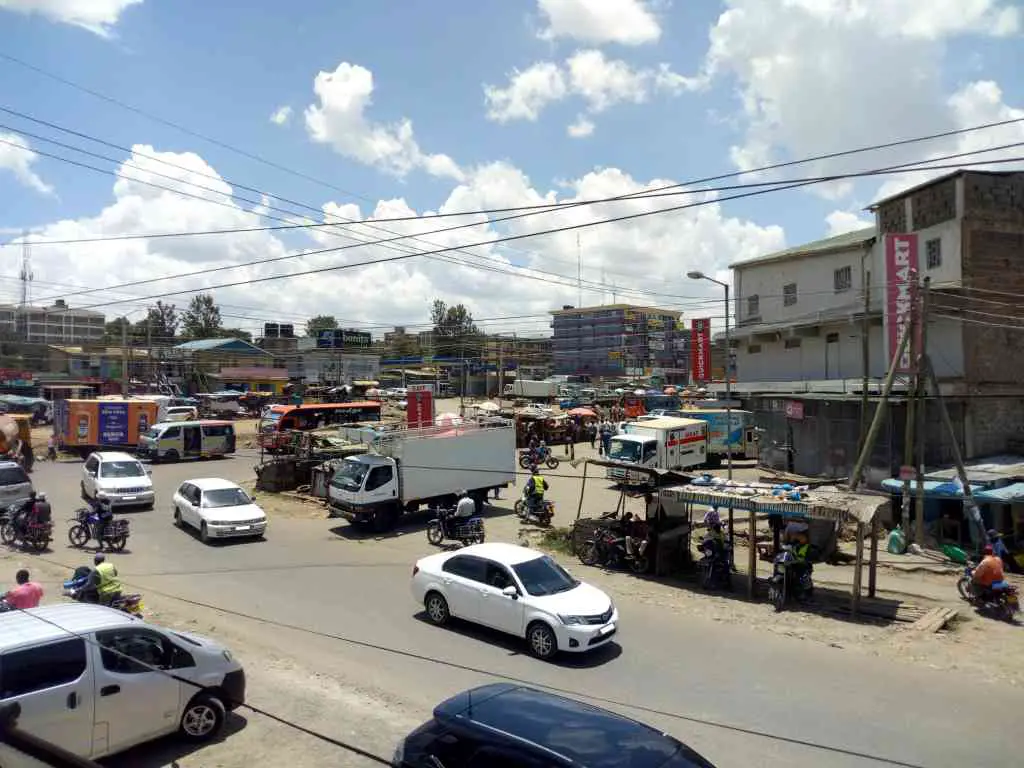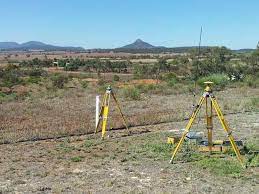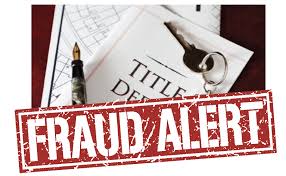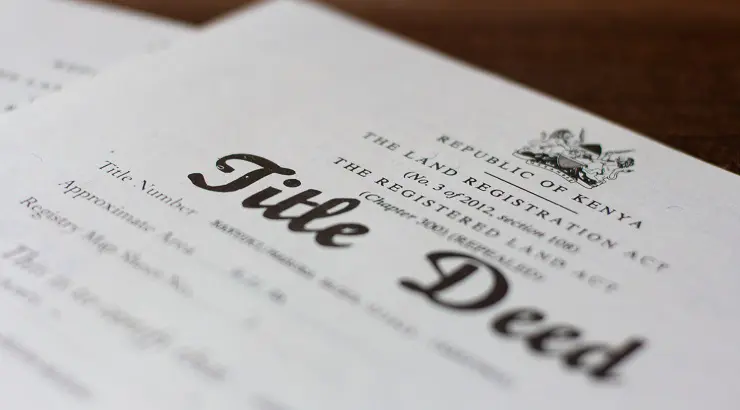Protect your property investment in Kenya by learning how to avoid land fraud. This guide covers essential steps, legal tips, and resources to ensure safe property transactions.
Introduction
Land fraud in Kenya is a growing concern, affecting both first-time and experienced property buyers. Understanding how to avoid land fraud in Kenya is essential to protect your investment and prevent costly mistakes.
Overview of the Prevalence of Land Fraud in Kenya
Fraudulent land transactions happen frequently across urban and rural areas. Common scams include fake title deeds, double-selling, and misrepresentation of property boundaries. Awareness of these risks helps buyers make informed decisions.
Importance of Due Diligence in Property Transactions
Before purchasing land, it’s critical to verify ownership, check legal documents, and consult professionals. Due diligence reduces the risk of falling victim to scams and ensures you’re investing in legitimate property.
Related post: What Apartment Can You Build with Ksh 40 Million in Ruaka? Unit Count, Rental Income & ROI Explained

Ensuring Safe Property Investments Through Proper Checks
Simple steps like conducting a land search, inspecting the property, and obtaining Land Control Board consent can safeguard your purchase. Using trusted online platforms like Ardhisasa and hiring a licensed conveyancing lawyer further strengthens your security.
Understand Common Types of Land Fraud in Kenya
Fake or Forged Title Deeds
Fake or forged title deeds are one of the most common types of land fraud in Kenya. Scammers create counterfeit documents that appear genuine, often targeting unsuspecting buyers. To avoid falling victim, it’s important to cross-check the title deed with official records at the Land Registry. Using digital platforms like Ardhisasa can also help verify the authenticity of property documents. Always ensure that the seller provides the original title deed for inspection. Consulting a licensed lawyer before making any payments adds an extra layer of protection.

Double-Selling of Land
Double-selling occurs when the same piece of land is sold to multiple buyers. This scam often happens in high-demand areas where verification is neglected. To prevent this, always request proof of ownership and conduct a thorough land search at the registry. A lawyer can help identify any previous claims or pending sales. Avoid making upfront payments until all documents are verified. Staying vigilant and following due diligence steps reduces the risk of financial loss.
Illegal Land Subdivisions
Some sellers illegally subdivide land without proper approval from the relevant authorities. Purchasing such plots can result in fines, disputes, or loss of property rights. Always check with the Land Control Board to confirm that any subdivisions are legal. Request official survey plans to verify plot boundaries. Engaging a licensed surveyor can also help detect discrepancies. Understanding the legal requirements for subdivision ensures your investment remains secure.
Misrepresentation of Property Boundaries
Misrepresentation of boundaries happens when sellers provide false information about plot size or location. Buyers may discover the true boundaries only after purchase, leading to disputes with neighbours. Always inspect the property physically and confirm boundary markers. A licensed surveyor can measure the land accurately and prevent surprises. Using Google Maps or satellite imagery for preliminary checks can also help. Accurate information protects your investment and avoids conflicts.
Phantom Land and Non-Existent Plots
Phantom land scams involve selling plots that don’t exist or are government-owned. Buyers often lose large sums before realising the fraud. Always perform a land search and confirm the plot’s existence at the registry. Visiting the site personally or hiring a surveyor ensures the land physically exists. Be cautious of deals offered at unusually low prices. Protect yourself by verifying all documentation and ownership history.
Related post: What Type of Gated Community Can You Build with Kshs.70 Million in Athi River?
Group-Owned or Share-Based Land Scams
Group-owned or share-based land schemes involve multiple owners claiming rights to the same plot. Unsuspecting buyers may end up in lengthy disputes if one party contests the sale. Always verify all parties involved and their consent to sell. Request formal documentation and legal advice to confirm ownership. Engaging a lawyer to draft a binding agreement can prevent future conflicts. Transparency from the seller is crucial to avoid legal complications.

Related post: Land Buying Process in Kenya – Step by Step (2025 Guide)
Conduct a Thorough Land Search
How to Perform a Land Search at the Land Registry
Performing a land search at the Land Registry is a critical step in avoiding land fraud in Kenya. This process verifies the legal owner of the plot and reveals any encumbrances, disputes, or pending sales. You can request the search in person or through a licensed conveyancing lawyer. The registry provides official documentation showing the current title deed status. Always compare the details with those provided by the seller. A thorough land search ensures you are buying genuine and undisputed property.
Using the Ardhisasa Platform for Verification
The Ardhisasa platform is Kenya’s digital system for verifying land ownership. It allows users to check the authenticity of title deeds online quickly. Using this tool reduces the risk of being scammed by fake documents. Ensure that the information on Ardhisasa matches the documents presented by the seller. Combining digital verification with physical checks strengthens your due diligence. This modern approach makes property transactions more transparent and secure.
Verifying Title Deed Numbers and Records
Title deed numbers are unique identifiers for each property in Kenya. Verifying these numbers ensures that the plot exists and matches official records. Cross-check the title deed number at the Land Registry or online platforms like Ardhisasa. Any discrepancies should be clarified with the registry before proceeding. Always keep copies of verification reports for your records. Proper verification helps prevent common scams such as double-selling and phantom plots.
Verify the Seller’s Identity and Ownership
Requesting Official Identification Documents
Always request the seller’s official identification documents, such as a national ID or passport. Matching the ID with the name on the title deed confirms the seller’s identity. Be wary of sellers who hesitate to provide identification. For added security, consider asking for supporting documents like PIN certificates or company registration for corporate sellers. Verification at this stage prevents impersonation fraud. Never make payments without confirming the seller’s authenticity.
Cross-Checking Seller Details with Title Deed
Cross-checking the seller’s details with the title deed is essential to avoid fraud. Ensure the name, ID number, and ownership history match the official records. A lawyer can assist in identifying inconsistencies or previous claims on the land. Discrepancies may indicate potential scams, such as double-selling. Keep detailed records of all verification steps. This practice safeguards your investment and ensures a smooth transaction.
Confirming Legal Authority to Sell
Even if a seller’s identity matches the title deed, they must have the legal authority to sell the property. This is especially important for inherited or group-owned land. Obtain written consent from all owners or legal guardians where applicable. The Land Control Board’s approval is often required for agricultural or restricted land. Ensuring proper authorisation prevents future disputes. A lawyer can draft legally binding agreements to confirm the seller’s authority.
Related post: Land Transfer Costs in Kenya Explained
Engage Qualified Professionals
Role of Conveyancing Lawyers
Conveyancing lawyers play a critical role in protecting buyers from land fraud in Kenya. They review all property documents, identify potential red flags, and ensure that the sale complies with legal requirements. A lawyer can also conduct a land search and verify the title deed, reducing the risk of purchasing fraudulent property. Engaging a lawyer early in the process saves time, prevents costly mistakes, and provides legal recourse if disputes arise. Buyers should select a lawyer with experience in property transactions. Proper legal guidance ensures that your investment is secure and legitimate.
Importance of Licensed Surveyors and Valuers
Licensed surveyors and valuers help confirm the boundaries, size, and value of the land. Surveyors can detect encroachments, illegal subdivisions, or misrepresented plot sizes. Valuers provide an independent assessment of the property’s market value, helping buyers avoid overpaying. Using professionals ensures transparency in the transaction and prevents future disputes. Always check the surveyor’s credentials and licenses to guarantee credibility. Professional verification is a key step in avoiding land fraud in Kenya.
Benefits of Escrow Services for Secure Transactions
Escrow services hold funds until all legal and verification checks are completed. This protects buyers from losing money if the sale is fraudulent. The service ensures both parties fulfil their obligations before funds are released. Escrow accounts provide a secure and transparent payment process. Using escrow is especially important for high-value transactions or long-distance purchases.
Related post: Cost of Land in Kiambu vs Machakos Counties (2025 Guide & Comparison)
Physically Inspect the Property
Visiting the Site to Confirm Existence and Boundaries
Visiting the land in person is essential to verify that it exists and matches the title deed description. Buyers can check for access roads, utilities, and surrounding developments. Physical inspection also helps identify encroachments or discrepancies in boundary lines. Never rely solely on pictures or verbal assurances from the seller. Always document your visit with photos or videos for future reference. A site visit strengthens your due diligence and reduces the risk of fraud.
Checking Boundary Markers and Survey Plans
Boundary markers indicate the legal limits of a plot. Checking them against official survey plans ensures the property matches the records. Discrepancies may suggest illegal subdivisions or encroachments. A licensed surveyor can confirm the accuracy of the boundaries. This step prevents future disputes with neighbours or authorities. Accurate verification is essential in avoiding land fraud in Kenya.
Consulting Neighbours or Local Community
Speaking with neighbours provides insights into the property’s history and the seller’s credibility. Neighbours may reveal prior disputes, ownership claims, or ongoing land issues. This informal verification complements official checks. Local knowledge helps buyers detect scams that may not appear in documents. Always cross-check community feedback with legal verification.
Related post: How to Verify a Title Deed in Kenya: A Comprehensive 2025 Guide
Beware of Red Flags in Land Transactions
Unusually Low Prices or Too-Good-to-Be-True Deals
Scammers often lure buyers with prices well below market value. While low prices may seem appealing, they often indicate underlying fraud. Compare the property price with similar plots in the area. Conduct a valuation to ensure the deal is legitimate. If a deal feels too good to be true, it probably is. Awareness of this red flag helps prevent falling victim to land fraud in Kenya.
Pressure to Make Quick Decisions or Payments
High-pressure tactics are a common fraud strategy. Sellers may claim other buyers are interested or that the offer expires soon. Avoid rushing into payments without conducting proper verification. Take time to review documents, inspect the property, and consult professionals. A cautious approach protects your investment and gives you leverage if issues arise.
Missing or Incomplete Documentation
Incomplete or missing documents are a major warning sign. Always ensure the title deed, survey plans, Land Control Board approvals, and consent letters are complete. Discrepancies or gaps should be resolved before making any payment. Retain copies of all verified documents for your records. Proper documentation ensures a smooth and legal land transaction.
Secure Legal Documentation
Obtaining Land Control Board Consent
For agricultural or restricted land, Land Control Board consent is mandatory. This ensures the sale is legally authorised and protects buyers from disputes. Consent confirms all owners agree to the transaction and that the land complies with zoning regulations. The process may vary by county, so always check local requirements. Obtaining consent is a legal safeguard that prevents future challenges.
Ensuring Agreements are Legally Binding
All agreements should be written, signed, and witnessed to be legally enforceable. Include details such as the purchase price, payment schedule, and contingencies. Legally binding agreements protect both buyer and seller in case of disputes. A lawyer can draft or review contracts to ensure compliance with Kenyan property laws. Proper documentation reduces the risk of fraud and misunderstandings.
Registering the Title Deed with Authorities
Once the purchase is complete, the title deed must be registered with the relevant authorities. Registration formalises ownership and provides legal proof of your rights. Keep a copy of the registered title deed and update all records. Registration also protects against double-selling or ownership disputes. Completing this step ensures a secure and legitimate investment in land.
Report Suspected Land Fraud
Contacting the DCI Land Fraud Unit
If you suspect land fraud in Kenya, the Directorate of Criminal Investigations (DCI) Land Fraud Unit is the primary authority to report to. They investigate fraudulent land transactions and help recover lost property or funds. Provide detailed information, including copies of documents, photos, and communication with the seller. Acting quickly increases the chances of resolving the case. Always keep a record of your complaint for follow-up. Contacting DCI ensures your report reaches the right enforcement authorities.
Lodging Complaints at the Ministry of Lands or County Offices
County land offices and the Ministry of Lands also handle complaints about fraudulent transactions. Filing a complaint formally registers the dispute and can trigger investigations or mediation. Ensure you include the title deed number, location, and any prior verification efforts. This step is especially important for disputes involving land control issues or inheritance claims. Early reporting can prevent other buyers from being defrauded.
Seeking Legal Redress Through Civil or Criminal Channels
Legal action may be necessary if fraud is confirmed. Civil suits can help recover funds or transfer ownership, while criminal proceedings may punish offenders. Engage a licensed lawyer to guide you through the legal process. Document all interactions and keep copies of complaints and evidence. Pursuing legal redress ensures your rights are protected and may deter future scams.
Utilise Technology for Verification
Digital Verification Through Ardhisasa
The Ardhisasa platform allows buyers to verify land ownership online. It provides official records for title deeds, helping detect fake or double-sold plots. Using Ardhisasa is fast, secure, and reduces reliance on manual checks. Cross-reference the platform’s data with physical documents provided by the seller. This digital verification is a key step in avoiding land fraud in Kenya.
Using Online Tools to Check Property Legitimacy
Other online tools can check property history, boundaries, and ownership disputes. Google Maps or GIS platforms help confirm the plot exists and matches survey plans. Some portals provide historical ownership information and legal notices. Combining multiple tools increases confidence in the property’s legitimacy. Technology complements physical inspections and professional verification for safer transactions.
Educate Yourself on Land Laws and Regulations
Understanding Property Laws and Regulations in Kenya
Knowledge of property laws is essential to avoid land fraud in Kenya. Learn about the Land Act, Land Registration Act, and regulations governing subdivisions and transfers. Understanding legal requirements ensures that transactions are compliant and protects buyers from illegal deals. Legal literacy also helps you identify red flags in documentation. Regular review of property laws empowers buyers to make informed decisions.
Staying Updated on Land Policies
Land policies and regulations can change frequently, affecting ownership, transfer, and development. Follow official government announcements, legal bulletins, and trusted real estate portals. Staying informed allows buyers to adjust strategies and comply with new requirements. Awareness of policy changes helps prevent accidental involvement in illegal transactions.
Participating in Workshops and Seminars
Workshops and seminars on property transactions provide practical knowledge from experts. You can learn verification techniques, legal requirements, and due diligence strategies. Networking with professionals also helps identify reputable lawyers, surveyors, and real estate agents. Attending such events increases confidence in property investments and reduces exposure to fraud.
Conclusion
Avoiding land fraud in Kenya requires diligence, verification, and professional support. By understanding common scams, conducting thorough land searches, verifying sellers, and consulting lawyers and surveyors, buyers can protect their investments. Physical inspections, awareness of red flags, securing legal documentation, and using technology like Ardhisasa further strengthen due diligence. Staying informed about property laws, policies, and market practices ensures you make safe, informed decisions. Remember, taking these steps may seem time-consuming, but they prevent costly mistakes and safeguard your property investment for the long term.
Frequently Asked Questions (FAQ)
- What is land fraud in Kenya?
Land fraud involves illegal practices where sellers misrepresent ownership, boundaries, or existence of a property to deceive buyers. Common scams include fake title deeds, double-selling, and phantom plots.
- How can I verify a title deed in Kenya?
You can verify a title deed at the Land Registry, through licensed conveyancing lawyers, or online via platforms like Ardhisasa. Cross-check the deed number, ownership history, and any encumbrances.
- What steps should I take to avoid land fraud?
Conduct a land search, verify the seller’s identity, inspect the property, consult professionals, secure legal documentation, and use online verification tools.
- Is it necessary to hire a conveyancing lawyer?
Yes. A lawyer ensures the transaction complies with legal requirements, verifies documents, and drafts binding agreements. They are essential for high-value or complex property deals.
- How do I perform a land search in Kenya?
Visit the Land Registry in person or hire a lawyer to conduct the search. Verify title deeds, encumbrances, and ownership history. Digital platforms like Ardhisasa also provide online verification.
- What are the common red flags of land fraud?
Watch for unusually low prices, pressure to pay quickly, missing or incomplete documentation, and sellers unwilling to provide proper identification.
- How do I obtain Land Control Board consent?
Submit an application to the local Land Control Board for approval, including all relevant documentation and signatures from owners. Consent ensures the transaction is legally authorised.
- What should I do if I suspect I’ve been defrauded?
Report immediately to the DCI Land Fraud Unit, Ministry of Lands, or county offices. Seek legal redress through civil or criminal channels with the assistance of a licensed lawyer.




6 thoughts on “How to Avoid Land Fraud in Kenya: A Step-by-Step Guide”
Comments are closed.